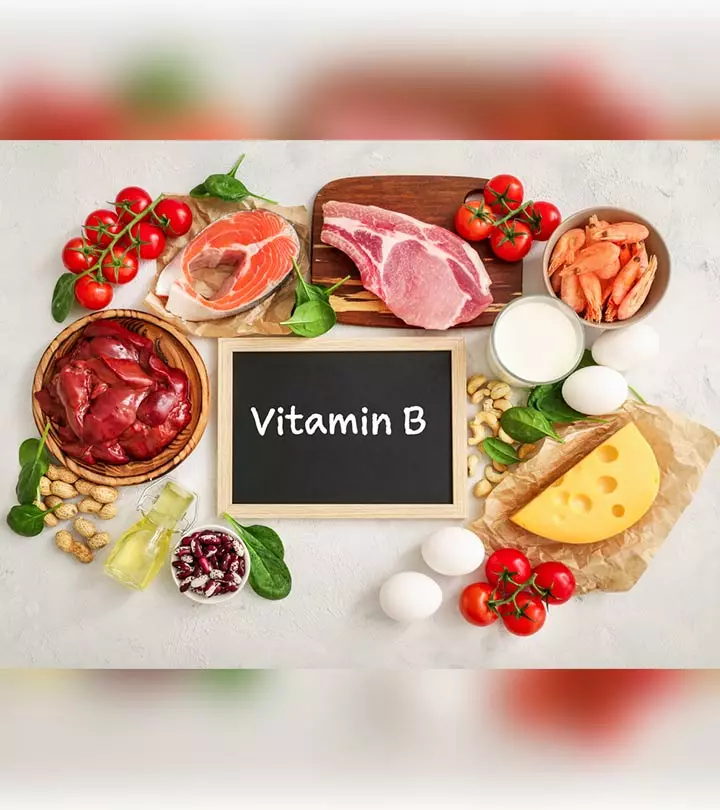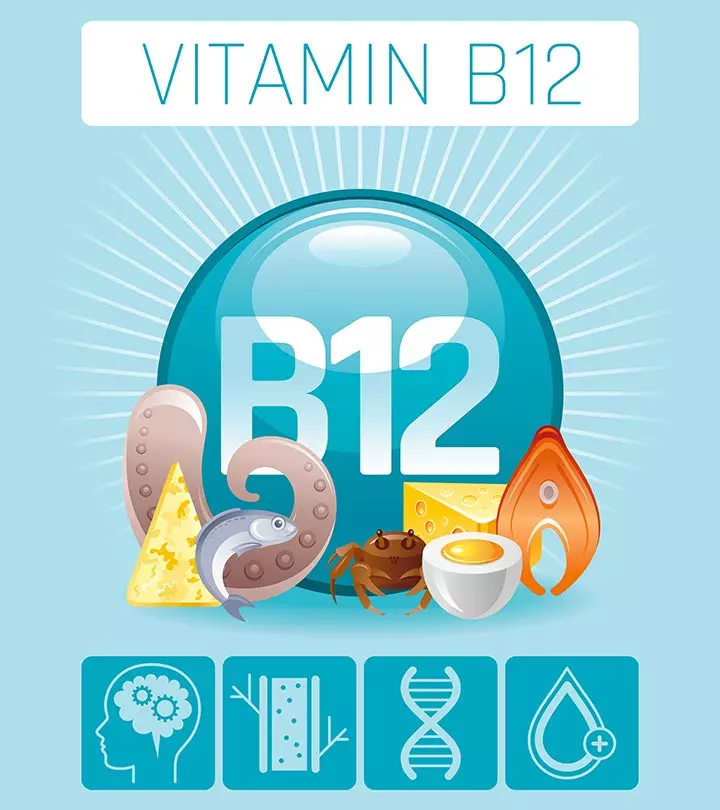Weight Loss Injections: 6 Effective Options For Faster Results
Take your weight loss shot only after considering the pros and cons in detail.

Image: Midjourney/ StyleCraze Design Team
Diet and exercise are the most popular methods for achieving optimal health. However, we occasionally discover that even the most stringent diets and exercise regimes are ineffective. Most people resort to modern medicine to assist them in getting in shape at this point. Today, we can see that more drastic procedures can be taken to lose weight without undergoing surgery. One such measure is taking weight loss injections in the stomach.
This choice is certainly unsuitable for you if you are afraid of needles! If your goal to lose weight outweighs your fear of injections, you may want to try this procedure. There are various types of weight loss injections from which you can choose. You can conduct research and read reviews to help you decide whether or not these injections are beneficial. Alternatively, you can achieve weight loss with the use of meal supplements and weight loss medications.

The standards of beauty are constantly evolving. It used to be size zero, but now it’s curvy. The requirement to stay healthy, on the other hand, is constant. Being overweight or obese has become commonplace in this age of sedentary lifestyles and unhealthy eating habits. Forget about the urge to be attractive; carrying additional weight might cause serious health problems. For instance, it may increase the risk of developing chronic conditions such as heart disease, diabetes, and hypertension (1).

After reading this post, if you feel comfortable getting the injections, go ahead! You should ask yourself a few things before deciding on a weight loss injection. Are you prepared to go to such extremes? Have you exhausted all other possibilities? Keep reading for greater insight.
In This Article
Types Of Weight Loss Injections
Before opting for a weight loss injection, it is important to know the kinds of injections available and how they work.
You can get the information at any clinic but it is best to do your homework lest you end up taking the wrong kind of injection! Since it is an injection, the wrong one can have harmful effects. You may also be allergic to the ingredients, so you need to be careful when it comes to weight loss shots. Krista Elkins, Registered Nurse, says, “When administered by a healthcare professional and prescribed by your doctor, weight loss injections are generally safe. However, because injections are more invasive and cause more discomfort than oral medications, expected side effects include pain and bruising at the injection site.” Check out these common and the most popular injections for weight loss:

1. B12

This injection for weight loss uses the effect of Vitamin B12 on our body. This vitamin can help increase metabolism and force our fat cells to release more energy. This can help reduce adipose tissues as well. A study involving 976 participants published in the Medicinski Glasnik journal explored the relationship between vitamin B12 levels and obesity. The results showed that vitamin B12 levels were significantly lower in obese and overweight individuals compared to healthy controls, with a mean vitamin B12 level of 178.9 pg/mL in obese individuals versus 328.5 pg/mL in healthy controls (2). So, a regulated dosage of B12 injection can help burn fat and reduce weight (3). However, there are no direct studies that support B12 injection-based weight loss. Also, the effect of this injection is disputed by many doctors.
 Quick Tip
Quick Tip2. Lipotropic

Lipotropic injections or lipo shots are widely used for weight loss. These injections use Lipotropics as fat burners. The fat-burning property of Lipotropic is harnessed and used by these injections. Methionine, choline and inositol are the main chemicals that make up these fat burning injections. In the right dose, liportropic injections can help shed unwanted pounds easily (4), (5).
A study published in the Journal of Cutaneous and Aesthetic Surgery explored the use of a non-surgical fat reduction treatment combining phosphatidylcholine (PC) and deoxycholate (DC) injections, which have been shown to break down fat in targeted areas. The treatment was most effective for areas like the face, jawline, and upper arms, with the best results typically seen after the first session. It offers a valuable, non-invasive option for body contouring, especially for younger women (6).
Another study published in the Aesthetic Surgery Journal also examined the effectiveness of injection lipolysis. A total of 441 patients received 1 to 4 injections of a phosphatidylcholine mixture, targeting areas like the abdomen, hips, thighs, arms, and face. Results showed significant fat reduction, with average circumferential decreases of 3.7 cm in the upper belly, 3.9 cm in the lower belly, and 1.6 cm in the upper arms. Facial treatments had particularly good outcomes. The study also mentions that the procedure had no major side effects. So, injection lipolysis may be a safe, effective alternative to surgery for small to medium fat deposits that diet and exercise can not address. However, it is not a solution for weight loss or obesity (7).
 Quick Tip
Quick Tip3. Vitamin B and Lipotropic

Here is one of the vitamin injections to lose weight! This injection is a concoction that contains the vitamins – B1, B2, B3, B6, B12 and C as well as 3 Lipotropics and Lidocaine. This injection essentially has all the compounds to aid weight reduction by burning excess fat; at the same time the vitamins ensure that our body is not starved of important nutrients (8). If you are allergic to Lidocaine, it is best to avoid the injection. Other than the Lidocaine, this injection does not have any common allergen in it. The injection uses the positive effects of both the B12 and Lipotropic. This leads to weight reduction as the fat in our body is burnt and energy is released.
However, it is important to note there is limited scientific evidence supporting the effectiveness of these injections for weight loss. Also, they should not be seen as a substitute for healthy eating and regular exercise. Ivory Howard, MPH, adds, “Taking weight loss injections doesn’t mean that you can skip exercise. Being physically active is a part of maintaining lasting success. Patients are encouraged to make lasting lifestyle changes, including maintaining a balanced diet, staying physically active, and managing stress.” It is best to consult a healthcare professional before starting any weight loss treatment to ensure safety and suitability.
Here is a comparison between B12, Lipotropic, and Vitamin B & Lipotropic injections for weight loss:
| Type | Main Components | Function | Allergen |
|---|---|---|---|
| B12 Injection | Vitamin B12 | Increases metabolism, releases energy from fat cells | No common allergens |
| Lipotropic Injection | Methionine, choline, inositol | Burns fat, helps shed weight | No common allergens |
| Vitamin B & Lipotropic | Vitamins B1, B2, B3, B6, B12, C, Lipotropics, Lidocaine | Burns fat, releases energy, maintains nutrient levels | Lidocaine (potential allergen) |
A 68-week experiment examined the effectiveness and safety of injecting 2.4 mg of Semaglutide once a week in individuals with obesity who were not diabetic in order to reduce body weight and achieve other health-associated endpoints. The Semaglutide group experienced a mean body weight change of -14.9% from baseline to week 68, compared to a placebo group’s -2.4%. The use of this weight-loss injection showed an estimated treatment difference of -12.4 percentage points. Look at the graph below for additional information.

Effect Of Once-Weekly Semaglutide On Body Weight
Source: Once-Weekly Semaglutide in Adults with Overweight or ObesityApart from the injection treatments for weight loss mentioned above, weight loss injections administered in the stomach have shown promising results in clinical studies. The most popular non-surgical, minimally-invasive method is the gastric botox or stomach botox. It is a botulinum toxin-based weight loss injection that relaxes stomach muscles for a short while. This slows down the rate at which the food leaves the stomach. As a result, individuals may feel fuller for a longer time after meals. The injection also reduces hunger pangs, which may result in weight reduction. However, the effects of the injection are temporary and one may not observe a significant decline in weight (9).
A study published in the Journal of Minimal Access Surgery assessed the effectiveness of gastric botulinum toxin A (BTX-A) injection as a treatment for obesity. After six months, the patients lost an average of 10% of their total body weight, significantly more than those on diet (5% weight loss) but less than those who underwent bariatric surgery (30.7% weight loss). The BTX-A group showed the most weight loss in the first three months, with a slower reduction in the following months. The study concludes that gastric BTX-A injection is a minimally invasive and short-term effective method for weight loss in obese patients (9).
A recent survey asking Americans about their familiarity with the weight loss drug Semaglutide and their opinions on its effectiveness and safety, it was found that while 60% of Americans have heard about this drug, 22% know someone who has taken them for weight loss purposes. While 53% believe they are effective, only 36% believe they are safe.
If you do opt for such a drastic form of weight reduction, you need to know the dosages. Generally the doctor can tell you the right dose. You may be wondering whether you have to take the injection yourself. You can do it yourself if you are not queasy or better still, seek professional aid to get the shot. You need to take the injections on a regular basis, if you want to see rapid change in your body.
According to Krista Elkins, Registered Nurse, “The effectiveness of medically proven weight loss injections is dependent on the patient’s compliance. These injectables can be costly, which affects compliance. Significant weight gain is to be expected if the medication is abruptly discontinued. As a result, these are recommended to be combined with lifestyle changes, such as a healthy diet and exercise.”
The above data suggests that weight loss injections can offer several benefits. Let us take a quick look at them in the next section.
Benefits Of Weight Loss Injections
Here are some of the key benefits of weight loss injections you should know about.
- They may help reduce appetite and cravings. This makes it easier to consume fewer calories, which is important for weight loss (10). However, it should not be used if you are allergic to its active ingredients (11).
- They may promote fat loss, especially in smaller areas that are typically harder to target through diet and exercise alone (7).
- Some of these injections may help improve insulin sensitivity and regulate blood sugar levels, which is especially beneficial for people with type 2 diabetes or prediabetes (12).
Further, they are easy to administer. Most of the treatments require a weekly or bi-weekly injection, which can be a convenient option compared to daily pills. As you lose weight, you may experience improved energy levels, better mobility, and a reduction in the risk of obesity-related conditions such as diabetes, joint pain, and high blood pressure (13).
When considering weight loss injections like B12, lipotropic, and vitamin B, be aware of potential side effects and safety warnings.
Key Takeaways
- There are three types of weight loss injections, such as B12, lipotropic, and vitamin B and lipotropic.
- A vitamin B12 injection can help increase metabolism and reduce adipose tissue, which, in turn, results in weight loss.
- The chemicals used in lipotropic injection may help shed those extra pounds.
- The third type is a concoction of B and C vitamins that may help burn extra fat molecules.
Safety And Side Effects
Here’s an overview of side effects of different weight loss injections you need to keep in mind before considering them:
- B12 Injections: While these injections are generally safe, some people may experience mild side effects, such as redness or swelling at the injection site, headaches, dizziness, fever, or allergic reactions. The injections may also interact with anticoagulants and lead to excessive bleeding. Other serious side effects include heart failure and clotting in blood vessels. (14). It is important to consult a healthcare provider, especially if you have any underlying health conditions or are taking other medications.
- Lipotropic Injections: These injections may cause side effects including nausea, diarrhea, gastrointestinal upset, dull headache, and greasy or fatty stools called steatorrhea. These symptoms usually happen within the first 24 hours after the injection and tend to resolve within 2 to 3 days. In some cases, the injections may also cause redness, inflammation, and hives (6). Overuse can lead to more serious complications. Always ensure a qualified professional administers them.
- Vitamin B Injections: While vitamin B injections are typically safe, excessive intake can result in side effects like skin rashes, itching, mild diarrhea, body swelling, and other allergic reactions. In rare cases, vitamin B injections may also result in anaphylactic shock, which is a severe allergic reaction that can be life-threatening (15).
Pregnant or breastfeeding individuals should avoid these injections unless directed by a healthcare professional. It is essential to discuss any pre-existing conditions and medications with your doctor to avoid potential interactions. Also, not everyone can administer these injections. Keep reading to learn more.
Eligibility Criteria
Who Can Take Them
- People struggling with weight loss who have not seen results from diet and exercise alone.
- Individuals looking for an extra boost in metabolism and energy through vitamin B12 or lipotropic injections.
- Those who are generally healthy and have been approved by a healthcare provider after a proper assessment.
Who Should Avoid
- Pregnant or breastfeeding women, unless advised by a doctor.
- Individuals with severe allergies to any components of the injections.
Underlying Health Issues To Consider
- People with liver or kidney problems should be cautious with lipotropic injections.
- Individuals with heart conditions or high blood pressure should consult their doctor first.
- Those on medications for chronic illnesses should discuss potential interactions with their healthcare provider before starting any weight loss injections.
These are based on anecdotal evidence, so it is best to consult a doctor if you are unsure about their suitability for your health.
While weight loss injections may be effective, approaching weight loss requires a well-rounded strategy that also incorporates lifestyle changes and holistic practices. The following section will take you through them.
Tips For Sustainable Weight Loss
Here are some sustainable weight loss practices you can add to your daily life:
- Focus on incorporating more protein and fiber into your meals. Both these nutrients help promote satiety, which keeps you feeling fuller for longer and reduces the likelihood of overeating. Foods like lean meats, legumes, vegetables, and whole grains are excellent choices (16) (17).
- Include healthy fats like avocado and olive oil, as they contain medium-chain fatty acids. These are known to promote a feeling of fullness when added to a low-calorie diet (18).
- Cut back on processed foods, sugary snacks, and unhealthy fats, as they contribute little nutritional value and add unnecessary calories to your diet.
- Even healthy foods can contribute to weight gain if consumed in excess. Be mindful of portion sizes and avoid eating when you are full. This simple habit can prevent unnecessary calorie intake and support gradual weight loss.
- Plan and prep your meals in advance. This will help you make healthier choices throughout the week and avoid the temptation of grabbing unhealthy snacks or ordering takeout when you are short on time.
- High stress can lead to emotional eating that hinders weight loss (19). Practices like meditation, deep breathing, and mindfulness can help.
- Sleep for at least 7-8 hours per night, as poor sleep can negatively impact metabolism and increase unhealthy food cravings (20).
Incorporate regular exercise into your routine to burn calories for weight loss. It will also boost your metabolism, support muscle growth, and improve your overall health (21).
Infographic: Types Of Weight Loss Injections
There are two more weight loss injections you should know about apart from the three mentioned above. These injections are glucagon therapy and oxygen therapy. They may promote weight loss to improve body fat management and reduce the risk of obesity.
Check out the infographic below to read up on these two types of weight loss injections.
Some thing wrong with infographic shortcode. please verify shortcode syntax
When weight loss diets and working out don’t work as fast as we want them to, some of us seek out drastic weight decreasing options, such as weight loss injections. The only problem is that while these injections do work, their effects are temporary. If you go back to eating too much, not exercising, and living a bad lifestyle with not enough sleep and too much alcohol consumption, you will gain back all that extra weight. Therefore, the key to healthy weight loss is eating right, exercising daily, and leading a healthy lifestyle!
Frequently Asked Questions
Are HCG injections for weight loss safe?
Krista Elkins, Registered Nurse, says, “The Food and Drug Administration advises against using HCG injections for weight loss. HCG is not approved for weight loss, but these products, which come in the form of oral drops or sprays, are advertised with unproven claims of miraculous weight loss and metabolism boosts. Furthermore, it is marketed to be taken in combination with a 500 kcal per day caloric diet (the RDA is 2000 kcal/day). A very low-calorie diet can cause health problems such as micronutrient deficiencies, electrolyte imbalance, gallstone formation, and even fatal irregular heartbeat.”
How do Wegovy injections help with weight loss?
Krista Elkins, Registered Nurse, says, “Semaglutide (marketed as Wegovy) belongs to a class of diabetes medications that have shown promising results in promoting weight loss in patients with and without diabetes. Wegovy aids in weight loss by directly activating specific parts of the brain, resulting in decreased appetite and food intake.” They are also found in slimming injections.
How much weight can you lose from injections?
The amount of weight you lose depends on several factors and varies from person to person
Do lipotropic pills work as well as injections?
It may work as well as injections together with proper diet and exercise. Consult your doctor to understand the benefits and risks of taking lipotropic pills before you start using them.
How many lipotropic injections are needed to see results?
Your doctor will take your body and several other factors into account before prescribing you the appropriate dosage.
Can you take lipotropic injections every day?
Every person’s body is unique. Only a medical professional will be able to tell you how many lipotropic injections per week you can take.
How quickly does B12 injections work for weight loss?
Anecdotal evidence suggests it takes two to seven days for a B12 shot or energy injections to show visible results.
What are amino acid injections?
A concentrated dietary supplement for injection containing the essential amino acids leucine, isoleucine, lysine, valine, phenylalanine, histidine, threonine, methionine and tryptophan as well as the non-essential amino acids alanine, arginine, glycine, proline, serine and tyrosine, with potential anabolic and anti-catabolic activities.
How does tirzepatide work for weight loss?
Tirzepatide is a medication with a dual action on GLP-1 (Glucagon-Like Peptide 1) and GIP (Glucose-Dependent Insulinotropic Polypeptide) receptors. When administered via injection, it activates these receptors in the brain, curbing hunger and promoting a sense of fullness. Hence, your food intake reduces, leading to gradual weight loss. It also aids blood sugar regulation, particularly beneficial for those with type 2 diabetes. Tirzepatide’s distinctive mechanism is a promising solution for those combating obesity and its associated health threats like type 2 diabetes.
However, due to potential side effects and contraindications, it is highly advised to use this medication under medical supervision to ensure its safe and effective utilization.
Weight loss injections are proving to be an effective solution for overweight and obese patients. Watch this video to learn more about this revolutionary treatment.
References
Articles on StyleCraze are backed by verified information from peer-reviewed and academic research papers, reputed organizations, research institutions, and medical associations to ensure accuracy and relevance. Read our editorial policy to learn more.
- Obesity and Hypertension Heart Failure and Coronary Heart Disease—Risk Factor Paradox and Recommendations for Weight Loss
https://pmc.ncbi.nlm.nih.gov/articles/PMC3096264/ - Association of vitamin B12 with obesity overweight insulin resistance and metabolic syndrome and body fat composition; primary care-based study
https://pubmed.ncbi.nlm.nih.gov/23892832/ - Inverse Association Between Serum Vitamin B12 Concentration and Obesity Among Adults in the United States
https://www.ncbi.nlm.nih.gov/pmc/articles/PMC6610317/ - Effect of Choline Supplementation on Rapid Weight Loss and Biochemical Variables Among Female Taekwondo and Judo Athletes
https://www.ncbi.nlm.nih.gov/pmc/articles/PMC4096089/ - Effects of three treatment modalities (diet myoinositol or myoinositol associated with D-chiro-inositol) on clinical and body composition outcomes in women with polycystic ovary syndrome
https://pubmed.ncbi.nlm.nih.gov/30915778/ - Injection Lipolysis: A Systematic Review of Literature and Our Experience with a Combination of Phosphatidylcholine and Deoxycholate over a Period of 14 Years in 1269 Patients of Indian and South East Asian Origin
https://pmc.ncbi.nlm.nih.gov/articles/PMC6371720/ - Injection lipolysis for effective reduction of localized fat in place of minor surgical lipoplasty
https://pubmed.ncbi.nlm.nih.gov/19338892/ - Treatment of Lipoma by Injection Lipolysis
https://www.ncbi.nlm.nih.gov/pmc/articles/PMC3183720/ - Can gastric botulinum toxin A injection be used as minimally invasive procedure in the short-term treatment of obesity?
https://pmc.ncbi.nlm.nih.gov/articles/PMC8973485/ - Effects of once‐weekly semaglutide on appetite energy intake control of eating food preference and body weight in subjects with obesity
https://pmc.ncbi.nlm.nih.gov/articles/PMC5573908/ - FDA Approves New Medication for Chronic Weight Management
https://www.fda.gov/news-events/press-announcements/fda-approves-new-medication-chronic-weight-management - Effect of dual glucose-dependent insulinotropic peptide/glucagon-like peptide-1 receptor agonist on weight loss in subjects with obesity
https://pmc.ncbi.nlm.nih.gov/articles/PMC9992880/ - Benefits of weight loss of 10% or more in patients with overweight or obesity: A review
https://pubmed.ncbi.nlm.nih.gov/35333446/ - Vitamin B12 (Cobalamin)
https://www.ncbi.nlm.nih.gov/books/NBK559132/ - Label: Vitamin B complex injection
https://dailymed.nlm.nih.gov/dailymed/drugInfo.cfm?setid=531dd211-980a-5c36-e054-00144ff88e88 - The effect of fiber on satiety and food intake: a systematic review
https://pubmed.ncbi.nlm.nih.gov/23885994/ - Protein weight management and satiety
https://pubmed.ncbi.nlm.nih.gov/18469287/ - Fats and Satiety
https://www.ncbi.nlm.nih.gov/books/NBK53550/ - The Association Between Body Mass Index Emotional Eating and Perceived Stress during COVID-19 Partial Quarantine in Healthy Adults
https://pmc.ncbi.nlm.nih.gov/articles/PMC8365042/ - Sleep and Metabolism: An Overview
https://pmc.ncbi.nlm.nih.gov/articles/PMC2929498/ - Health Benefits of Exercise
https://pmc.ncbi.nlm.nih.gov/articles/PMC6027933/
Read full bio of Dr. Sandeep Jassal
- Ivory Howard is a certified yoga and Pilates instructor. She helps her clients reach their health and fitness goals through challenging workouts focused on balance, strength, and flexibility. She has a master’s degree in Public Health from The George Washington University. Ivory also has been featured in Weight Watchers, Fit & Well, The Zoe Report, Health Digest, Sisters from AARP, among other publications.
 Ivory Howard is a certified yoga and Pilates instructor. She helps her clients reach their health and fitness goals through challenging workouts focused on balance, strength, and flexibility. She has a master’s degree in Public Health from The George Washington University. Ivory also has been featured in Weight Watchers, Fit & Well, The Zoe Report, Health Digest, Sisters from AARP, among other publications.
Ivory Howard is a certified yoga and Pilates instructor. She helps her clients reach their health and fitness goals through challenging workouts focused on balance, strength, and flexibility. She has a master’s degree in Public Health from The George Washington University. Ivory also has been featured in Weight Watchers, Fit & Well, The Zoe Report, Health Digest, Sisters from AARP, among other publications. - Krista Elkins, NRP, RN, has 20 years of experience in healthcare as both a paramedic and a registered nurse. She has worked on both ground and helicopter ambulances (CCP-C, CFRN), ER, ICU, Primary Care, Speciality Care, Psychiatric, and Wilderness Medicine. She also practices and has a devoted life-long interest in Preventative Medicine.
 Krista Elkins, NRP, RN, has 20 years of experience in healthcare as both a paramedic and a registered nurse. She has worked on both ground and helicopter ambulances (CCP-C, CFRN), ER, ICU, Primary Care, Speciality Care, Psychiatric, and Wilderness Medicine. She also practices and has a devoted life-long interest in Preventative Medicine.
Krista Elkins, NRP, RN, has 20 years of experience in healthcare as both a paramedic and a registered nurse. She has worked on both ground and helicopter ambulances (CCP-C, CFRN), ER, ICU, Primary Care, Speciality Care, Psychiatric, and Wilderness Medicine. She also practices and has a devoted life-long interest in Preventative Medicine.
Read full bio of Tanya Choudhary
Read full bio of Arshiya Syeda
Read full bio of Moksha Gandhi



























Community Experiences
Join the conversation and become a part of our empowering community! Share your stories, experiences, and insights to connect with other beauty, lifestyle, and health enthusiasts.